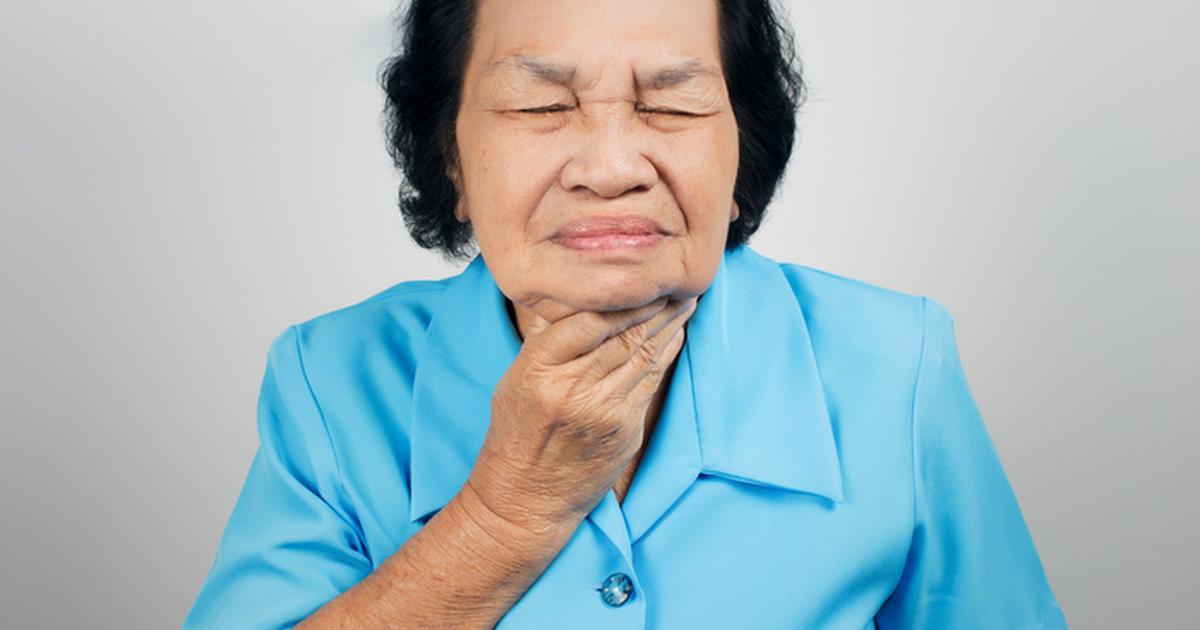Warning Signs Of Niemann-Pick Disease
Niemann-Pick disease affects multiple systems throughout the body. It has many symptoms, and the severity varies from case to case. Rather than being one disease, Niemann-Pick has four distinct types. These are type C1 and C2, type B, and type A. The classification is based around the symptoms and signs, along with the genetic cause. Type A is typically noticed by the time a baby is three months old due to the enlarged spleen and liver. Type B presents in middle childhood. Types C1 and C2 tend to become apparent in childhood, though symptoms can develop at any point throughout a person's life. They're very similar in their symptoms and progression, but they have different genetic causes. Patients with type C1 and C2 might survive to adulthood.
Uncover the warning signs of Niemann-Pick disease now.
Recurring Pneumonia

Studies have concluded individuals with unexplained, recurrent pneumonia should be tested for Niemann-Pick disease. Other tests should also be done to see if there's an underlying cause. One study involved lung biopsies of four patients with type B plus two patients with type C. Every biopsy showed there was endogenous lipoid pneumonia, which is caused when lipids accumulate in the lungs. There are two types of lipoid pneumonia: exogenous and endogenous. Endogenous pneumonia occurs when the disease's cause is located internally, rather than being caused by an external influence. In most cases, individuals with endogenous lipoid pneumonia experience the condition due to bronchial obstruction. Pneumonia recurs because the body fails to metabolize the lipids properly, causing them to continue building up in the lungs. Even if the initial buildup is treated, the disease's progression can cause recurrences.
Learn more about the symptoms of Niemann-Pick disease now.
Difficulties Walking

Niemann-Pick disease patients may experience difficulties walking. This is because of ataxia, a neurological condition that causes a lack of control when moving the voluntary muscles. Patients may also have trouble walking because of the loss of muscle tone. There may be symptoms of muscle spasticity, in which the muscles become stiff and make moving awkward. Ataxia is a nervous system condition that occurs when the nerves degenerate. In Niemann-Pick disease patients, this occurs because of brain damage to the cerebellum, which helps coordinate movement. It's important to identify and treat ataxia because it can have life-threatening, debilitating complications. Ataxia commonly involves a lack of coordination, deterioration of fine motor skills, and gait abnormalities. Ataxia patients often need scooters, walkers, or wheelchairs to help with their mobility.
Continue reading to reveal more Niemann-Pick disease warning signs now.
Difficulties Swallowing

Individuals with Niemann-Pick disease may also have difficulties swallowing, which is also called dysphagia. The symptoms may be related to ataxia. Ataxia can cause trouble with eating and swallowing, since patients have an impaired ability to control their movements. Dysphagia occurs when the nerves and muscles that move food through the esophagus and throat aren't working properly. The condition isn't always a sign of muscle issues, though, as it can also be caused by blockages in the esophagus or throat. Patients might have trouble completely swallowing liquids or foods on the first try. They may gag or cough when they swallow, and foods may come back up. It's also common for swallowing to cause pain, and for people to feel like food is stuck in the chest or throat. Some individuals even lose weight because they can't get enough food into their system.
Get more details on the symptoms linked to Niemann-Pick disease now.
Sleep Disturbances

Sleep disturbances may occur in individuals with type C Niemann-Pick disease. These symptoms often mimic the symptoms of narcolepsy, including cataplexy, which is an uncontrollable, sudden muscle weakness that occurs during the day, often because of a strong emotion like laughter or excitement. Cataplexy doesn't occur in all type C patients, but it has been reported in some. In one study, all of the five type C patients observed had disrupted sleep. They slept less, had decreased sleep efficiency, had less REM sleep, and had less delta sleep than the control group of healthy individuals. During delta sleep, patients would have sudden increases in their muscle tone. The reason for the sleep disturbances is theorized to be related to decreased hypocretin levels. There are two main hypocretins in the body, hypocretin-1 and hypocretin-2. Both are made by a hormone that may be deficient in Niemann-Pick disease patients. Hypocretin plays an important role in regulating the sleep-wake cycle.
Discover additional Niemann-Pick disease warning signs now.
Dystonia

Dystonia is a disorder that causes a patient's muscles to uncontrollably contract. This contraction makes the affected part of the body twist involuntarily, which in turn leads to abnormal postures or movement repetitions. Dystonia might affect just one muscle, a group of muscles, or the whole body. The condition affects around one percent of the population. While it can exist on its own, it's also associated with Niemann-Pick disease. The symptoms vary from mild to severe. In the early stages, patients may experience cramping in their foot, pulling in the neck, difficulty with speech, uncontrolled blinking, or a 'dragging' in the leg. The symptoms may also worsen with fatigue and stress. Since Niemann-Pick disease patients are often fatigued due to sleep disturbances, the dystonia may worsen.
